
Senate Majority Leader Mitch McConnell reflexively inflates his throat pouch when faced with having to actually act.
One of the under the radar accomplishments of the Trump administration has been its ability to identify and nominate a lot of high quality candidates for vacancies on the federal bench. (The below graphics and pullquotes are from The Daily Signal.)
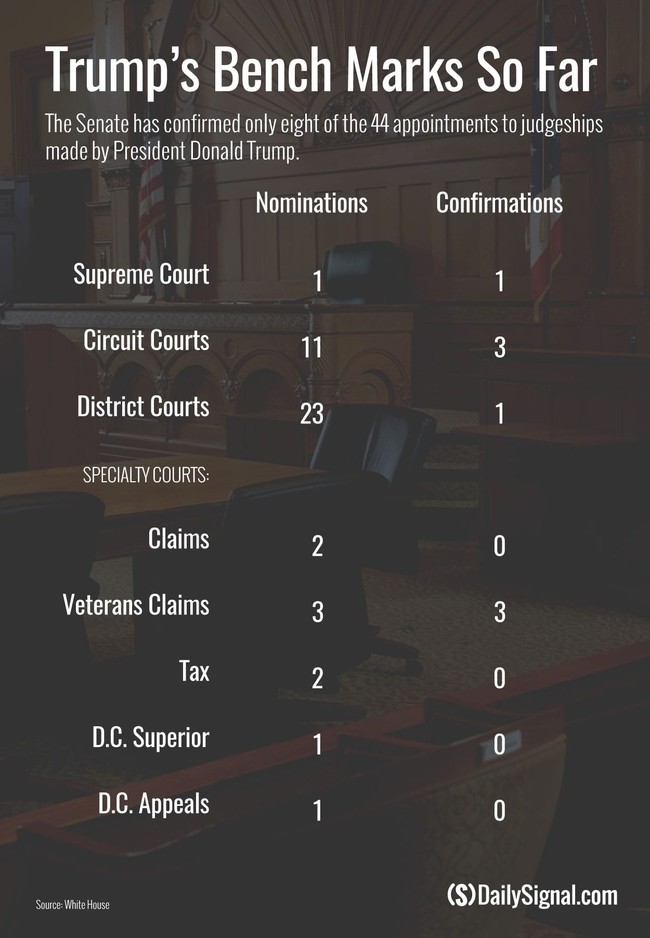
This chart is off a bit, the current number of nominees exceed 50 not 44.
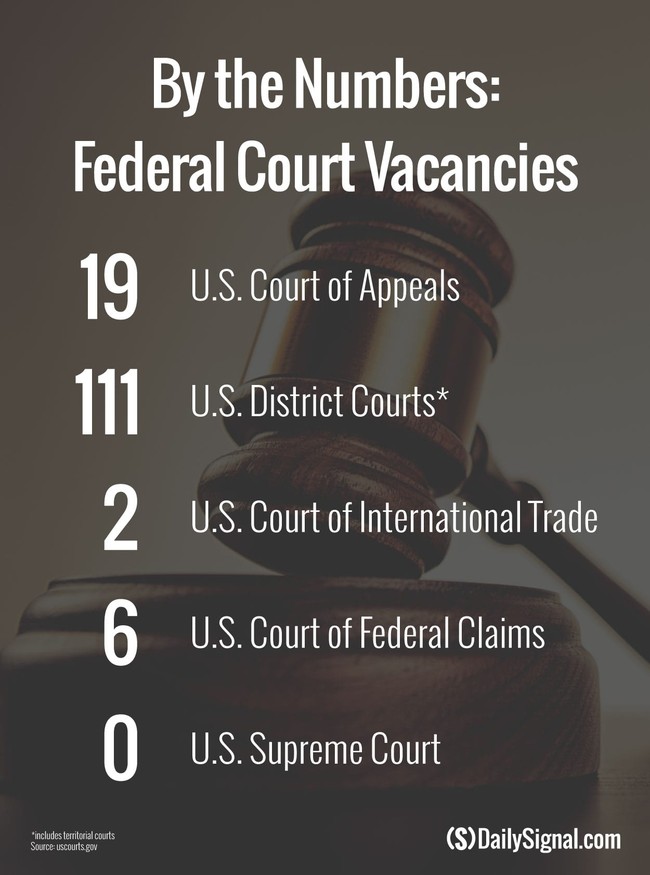
During his first year in office, George W. Bush nominated 13 appeals court judges, but only two before his 200th day in 2001. The Democratically-controlled Senate confirmed six that year; the others had to wait until 2002.
Bush nominated 35 district judges in 2001, but only two during the first 200 days. The Senate confirmed 22 of the 35 that year.
Clinton, after securing Senate confirmation of Ruth Bader Ginsburg for the Supreme Court, moved on Aug. 6, 1993, to send three appeals court nominees and 11 district court nominations to the Senate.
By the end of 1993, Clinton had nominated five appellate judges and won three confirmations. He nominated 32 district judges, securing confirmation for 24 during that first year.
Despite it success in making nominations and the fleeting chance to reshape the federal judiciary, the stumbling block remains the Senate.
Now, Mitch McConnell is apparently feeling pressure to act and it is coming from donors and from conservative groups.
Senate Majority Leader Mitch McConnell (R-Ky.) is moving to head off a public fight with conservative outside groups that have become increasingly frustrated over the Senate’s sluggish pace in confirming President Donald Trump’s judicial nominees.
The influential Judicial Crisis Network had planned on launching a $250,000 ad buy in Washington on Tuesday calling on McConnell to either change the Senate rules to jam through new judges or keep the chamber in session until Democrats relent out of fatigue, according to sources familiar with the plans.
But before the ad campaign could begin, McConnell’s aides contacted the conservative advocacy group — a major ally for Senate Republicans on court battles — to defuse what could have beeen a public intraparty confrontation over judicial confirmations.
And, for the time being at least, he’s pretending to be exercised.
Democrats won’t be pleased. The steps McConnell has taken in recent weeks are aimed at thwarting their efforts to block, sideline, or delay President Trump’s nominees.
Here’s what McConnell has done:
* Confirming judicial nominees has been elevated to a top priority in the Senate. “I decide the priority,” McConnell said in an interview. “Priority between an assistant secretary of State and a conservative court judge—it’s not a hard choice to make.”
And when nominees “come out of committee, I guarantee they will be dealt with,” McConnell said. “Regardless of what tactics are used by Democrats, the judges are going to be confirmed.”
* No longer will “blue slips” be allowed to deny a nominee a Senate Judiciary Committee hearing and vote on confirmation. In the past, senators have sometimes barred a nominee from their state by refusing to return their slip to the committee, thus preventing a hearing and confirmation.
“The majority”—that is, Republicans—will treat a blue slip “as simply notification of how you’re going to vote, not as an opportunity to blackball,” McConnell told me. The use of blue slips, he noted, is not a Senate rule and has “been honored in the breach over the years.” Now it won’t be honored at all.
* The so-called “30 hours rule”—which provides for 30 hours of debate on a nominee—won’t be overturned. But McConnell vowed to set aside time for these debates. And he can make this happen because he sets the Senate schedule.
Real or not real. That’s the question you always have to ask whenever McConnell promises to stick it to the Democrats:
McConnell indicated to The Weekly Standard that he plans to push through judicial nominees even if they are opposed by their home-state senators — abandoning the so-called blue-slip rule that has been in practice for at least a century. Yet he apparently didn’t get buy-in from Grassley (R-Iowa), who has the power to jam through candidates for the federal bench.
“The chairman of the Judiciary Committee will determine how to apply the blue-slip courtesy for federal judicial nominees, as has always been the practice,” Grassley spokesman Taylor Foy said Wednesday. “Over the years, chairmen have applied the courtesy differently, but the spirit of consultation has always remained.”
Senate Republicans have been increasingly eager to eliminate the Senate’s “blue slip” tradition, in which both home-state senators give their imprimatur to a judicial nominee in order for the person to receive a confirmation hearing. McConnell’s comments come amid new pressure from conservative groups to increase the pace of judicial confirmations.
…
But Grassley has so far been reluctant to end the blue-slip tradition, even as past judiciary panel chairmen, including Sen. Orrin Hatch (R-Utah), have ignored blue slips for circuit court nominees.
This has the making of more failure theater. Just another ObamaCare repeal. Because no crisis is ever too great to not let it go to waste.



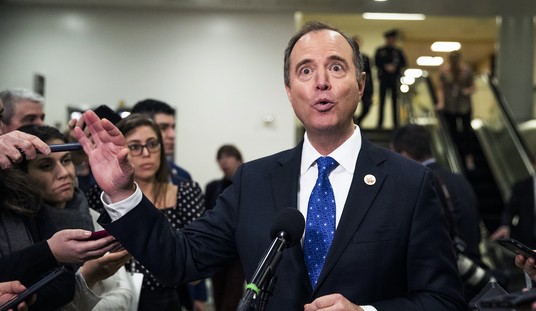





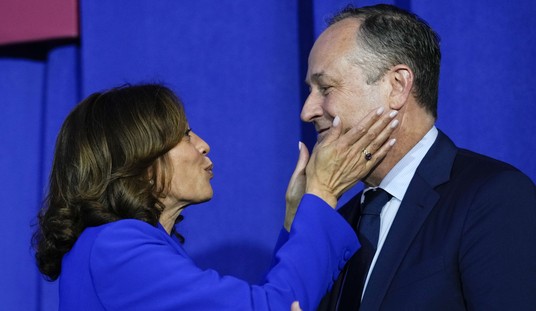


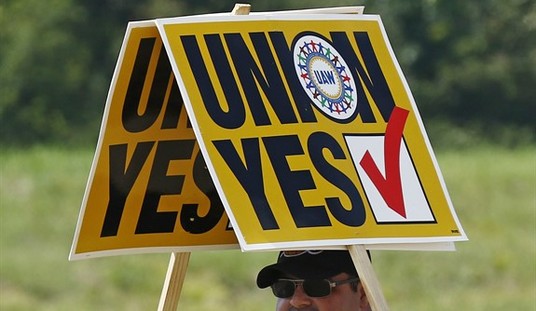

Join the conversation as a VIP Member